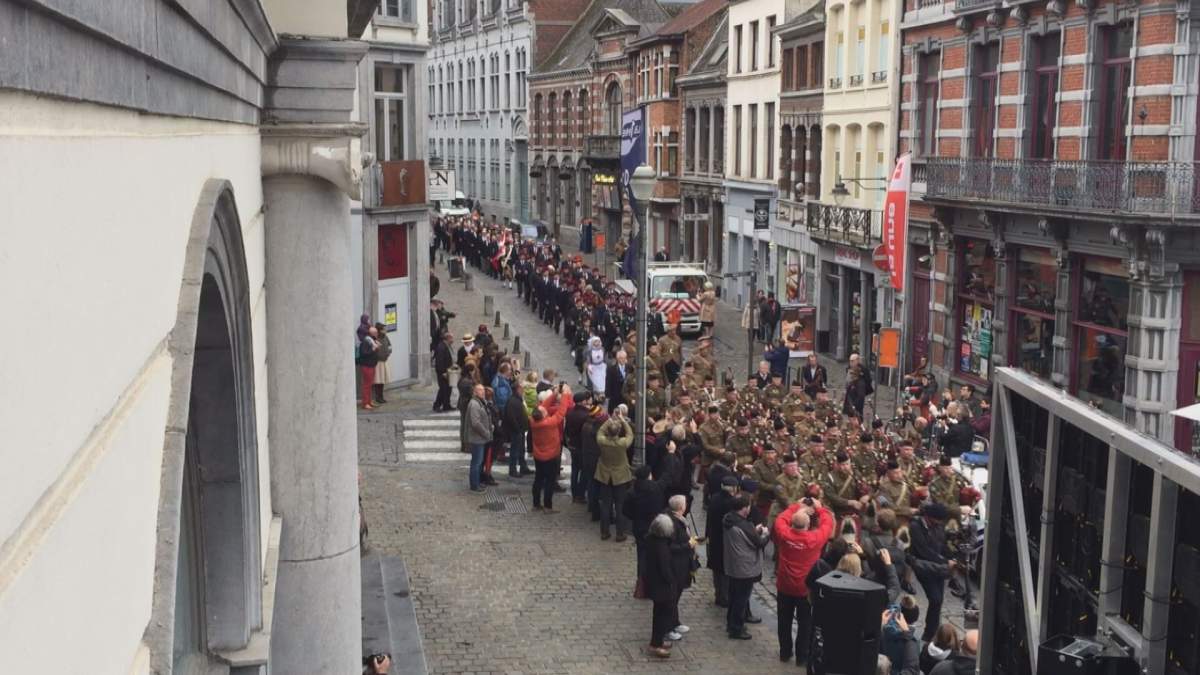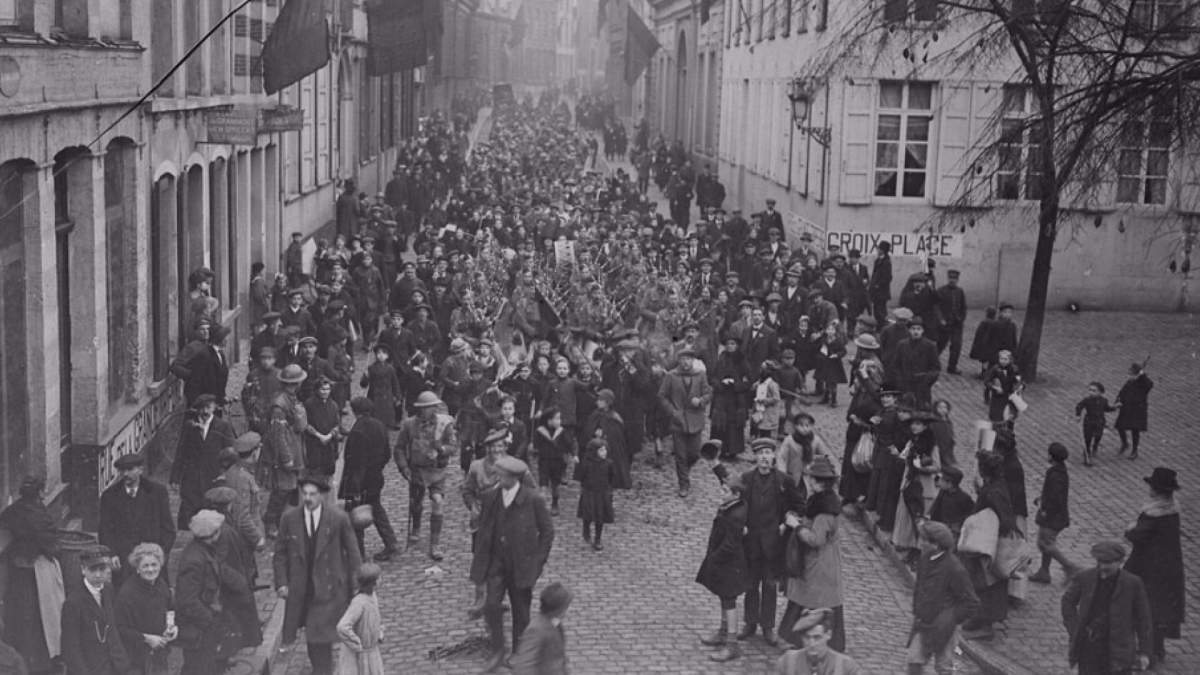Father David Donkin made a promise to his two grandfathers before they died that he would return to the Belgian city of Mons, where they fought at the end of the First World War.

He kept his promise, but it was emotional.
“I keep crying,” says the Canadian chaplain. “I’ve been anticipating this moment for 40 years, and here I am. That’s why I have their two badges on my hat.”
Donkin was among the several hundred Canadians who made the trip to Mons on the anniversary of the end of the First World War.
One hundred years ago to the day, it was Canadian troops who pushed out the German soldiers, liberating the city after four years of brutal occupation.
One of Donkin’s grandfathers wrote a letter home on Nov. 11, 1918 after finding out the armistice had been signed and the war was over.

Get breaking National news
Donkin brought the original copy on his trip to Mons.
Lt. Harry Moore was with the Fourth Canadian Mounted Rifles.
In a letter to his mother, Moore wrote that there were no celebrations when the men were told the war was over.
“Queer thing, but I haven’t heard a cheer yet. Nor have I felt like cheering myself,” he wrote.
“When the dispatch came in this morning — ‘hostilities will cease at 11 a.m.’ — it seemed just like any other message. It didn’t disturb us a bit. I suppose that we’ve seen so much death and destruction, unmoved, that nothing excites us.”
WATCH: Veterans’ stories from the First World War
Vanessa Lawetz and Taylor Mcaleer made the trip to Belgium from Barrie, Ont., with their daughter, Estelle. They say the goal is to pass on the importance of Remembrance Day. Being in Mons, they say, was like walking through history.
“In Canada, we don’t have the history amongst us,” says Lawetz. “Here, it’s everywhere. There’s statues, cemeteries, monuments — it’s much more real.”
Canadian Carol Dolan brought two framed pictures to the town square of Mons: photos of her grandmother and grandfather.
“She was the love of his life, and he went home to her,” says Dolan. “He didn’t have to die in a cold, muddy trench. He got to live, and I wouldn’t be here if it wasn’t for that.”
James Finny was with the 35th Battery. On the morning of Nov. 11, he was in a village about five kilometres outside Mons. Finny was one of the troops who entered the city later in the day.
Dolan knew her grandfather but rarely heard any stories about his experiences in the war.
“He never really talked about the war at all, so there was a lot of mystery around it over us,” says Dolan. “He suffered nightmares and things. I wanted to be here to make it more real.”



















Comments
Want to discuss? Please read our Commenting Policy first.